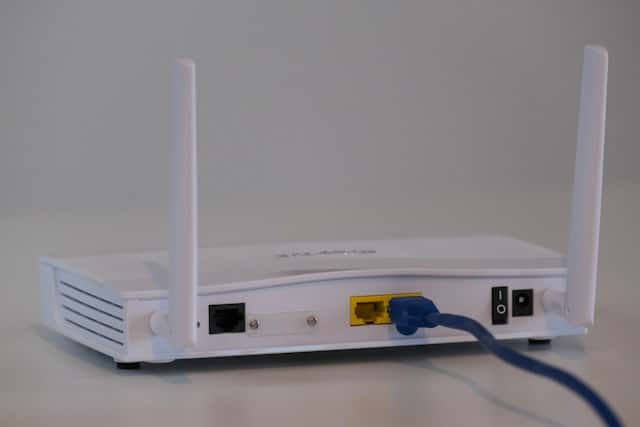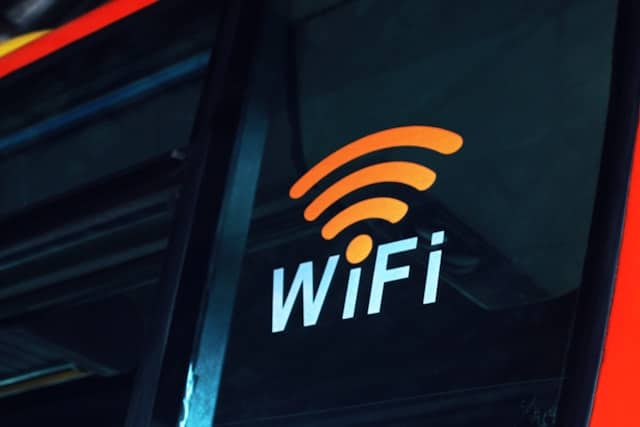Using public Wi-Fi in the United Arab Emirates (UAE) is a convenient way to stay connected to family and friends, whether you’ve just arrived in the country or you’ve accidentally used the last of your mobile data while you’re out and about.
Although the UAE has strict cybercrime laws with harsh penalties for hacking and other online offences, cybercriminals still find ways to target unsuspecting users on unsecured networks. Being aware of the risks and taking steps to prevent them—such as only accessing your Remitly wallet when you’re on a known, secure network—can help you to avoid falling victim to a crime.
In this blog, we’ll show you everything you need to know about using public Wi-Fi in the UAE, from where you can connect to what precautions you can take to stay safe online.
Where you can find free public Wi-Fi in the UAE
Free public Wi-Fi is widely available across the UAE and using it can be a great way to reduce your cost of living in Dubai and other Emirates when you first arrive in the country. It’s often provided by the UAE government, in partnership with telecom providers like du and Etisalat.
In Dubai, free Wi-Fi is available in the airport and on the city’s public transport networks, including the Dubai Metro, buses, RTA taxis, as well as ferries and water buses.
If you’re in Abu Dhabi, you can connect to public Wi-Fi in 478 locations across the Emirate, including in the airport, on buses, and at a variety of parks and beaches. There are currently 77 parks, two beaches and 459 buses equipped with Wi-Fi networks in the city, along with a variety of others in Al Ain and Al Dhafra.
Connecting to these networks is pretty straightforward:
- Enable Wi-Fi on your device
- Select one the UAE Wi-Fi networks offered by du or Etisalat (&e)
- Wait to be redirected to the login page
- Enter your details and press connect
Once you’re authenticated, you can browse the internet for free. That said, it’s good to note that your session will usually be limited either by time or data. Once you exceed these limits, your connection will be cut off.
Besides the government-backed networks, there are also many private establishments that offer free Wi-Fi to their customers. Shopping malls, cafes, and restaurants all commonly offer complimentary internet access. Simply ask a member of staff for the password.

Internet rules in the UAE
Internet usage in the UAE is governed by a combination of Sharia Law principles and regulations set out by the Telecommunications and Digital Government Regulatory Authority (TRDA).
The TRDA is in charge of enforcing the Internet Access Management Regulatory Policy, which requires mobile network providers and internet service providers (ISPs) to block content that’s viewed as being contrary to public interest, morality, order, national security, and Islamic ethics.
This includes:
- Pornography
- Gambling websites
- Anti-religious material
- Content that criticises the government or promotes political instability
Accessing this content is illegal and can lead to hefty fines and even imprisonment. Although you can use a VPN to skirt the blocks put in place by your network provider or ISP, it’s best to avoid accessing this content altogether.
The risks of connecting to unsecured networks
Although free public Wi-Fi makes it super easy for you to stay connected while you’re on the go—whether you’re starting a small business or just scrolling on social media—there are some security risks that you should be aware of before you connect.
Many public Wi-Fi networks, including those in cafes, airports, and other public spaces, lack the security measures necessary to keep you safe from cyber threats while you’re surfing the web.
For one, you could fall victim to a man-in-the-middle attack. Here, cybercriminals virtually position themselves between your device and the Wi-Fi network to intercept your communications. This allows them to steal data and sensitive information like passwords or credit card details.
Malware is another common threat. Cybercriminals sometimes exploit unsecured Wi-Fi networks to distribute malicious software, such as viruses, to any device that connects to the network. This can enable them to steal information or even take control of your device.
Connecting to public Wi-Fi securely in the UAE
There are some risks involved with using public Wi-Fi, but that doesn’t mean you have to avoid it entirely. By taking a few precautions, you can minimise these threats and keep your data safe when you’re online.
Before you connect
It’s essential to take a few steps to safeguard your personal information before connecting to public Wi-Fi in the UAE. One of the most effective measures for staying safe online is to use a virtual private network (VPN).
These handy tech tools encrypt your traffic, scrambling the data sent to and from your computer into an unintelligible code that’s virtually impossible for cybercriminals to crack. It also has the benefit of being able to change your virtual location, which can sometimes help you to find cheap international flight deals.
There’s been some confusion around the legality of using these private networks in the Emirates, but it is perfectly legal to use a VPN in the UAE—as long as it’s for legitimate purposes, like enhancing your online security. It’s a good idea to download a reliable VPN onto your device and connect to it before accessing a public Wi-Fi network in the UAE.
You may also want to ensure that your device’s firewall is active and that you have up-to-date anti-malware software installed. Firewalls prevent unauthorised access to your device, while anti-malware or anti-virus softwares detect and eliminate malicious software.
Another important safety measure is ensuring that you use strong passwords for all of your accounts. The stronger the password, the more difficult it is for hackers to crack it. When combined with measures like two-factor authentication, strong passwords can prevent unknown third parties from accessing your data.
Finally, ensure that your device and all of the applications are up to date. The latest versions of software often include security patches that protect you against vulnerabilities that could be exploited by cybercriminals.
While you’re browsing
Safe browsing practices ensure that you protect your personal information when you’re accessing the internet using a public Wi-Fi network.
First, it’s worth checking that you’re connecting to the correct network. Some cybercriminals may imitate known networks in an attempt to get you to hand over personal information that they can then use to steal your data.
Once you’ve connected, avoid doing anything where you need to send or receive personal or sensitive information, like sending money online, logging in to your bank account, or requesting password resets. It’s also best to stick to websites with secure protocols. You can identify these by looking for “https” in the URL or a padlock icon in the address bar of your browser.
It’s also worth disabling the file sharing features on your device. Just like other digital connections, these portals offer a way for hackers to potentially gain access to your device and all of the data stored on it.

When you’re finished
After you’ve wrapped up your browsing session, log out of any accounts that you accessed during your session. This would force anyone who may have gained access to your data while you were connected to have to log in again, which would potentially trigger notifications that could alert you to the threat.
It’s also important to disconnect from the public Wi-Fi network that you used. This helps to ensure that your device won’t be accessed by anyone while it’s in your back pocket or your handbag.
You may also want to instruct your device to forget the network so that it doesn’t automatically reconnect in the future, as this could expose you to risks like session hijacking or man-in-the-middle attacks.
Key Takeaways
Accessing public Wi-Fi in the UAE is easy, but it’s important to stay safe while you’re online. The country might have strict cybercrime regulations, but unfortunately that isn’t enough to deter hackers and fraudsters.
Taking a few simple precautions, like verifying that you’re connecting to the right network, avoiding accessing sensitive data, and using security software, can go a long way to helping you keep your personal information safe.
By following the tips in this guide, you can reduce the risk of falling victim to cybercrime when using public Wi-Fi in the UAE or anywhere.
FAQs
How to connect to public Wi-Fi securely?
To connect to public Wi-Fi securely, first ensure that your device and applications are up to date. Then disable the file-sharing features on your device. Next, verify that you’re accessing the correct network by checking its name. You can also use a VPN to encrypt your connection and prevent unauthorised third parties from seeing what you’re doing online.
Is it safe to use public Wi-Fi in Dubai?
Using public Wi-Fi in Dubai or anywhere comes with some risks. That said, taking a few precautionary steps—like updating your device, using a VPN when you connect, and using strong passwords on your accounts—can help you to minimise security risks.
Is it safe to use free Wi-Fi when you are in public places?
Unfortunately, using free public Wi-Fi always involves some security risks. These networks usually lack proper encryption, which makes them susceptible to cyber threats. To protect yourself, avoid accessing personal information during your session and ensure that you only access secure websites. It’s also a good idea to use a VPN to prevent anyone from being able to decode your data while you’re browsing.
How to use airport Wi-Fi safely?
Airport Wi-Fi helps you stay connected while you’re traveling—which can be extremely important when you need to access your flight information or download boarding passes. That said, these unsecured networks can create security risks. Always be sure that you’re connecting to the correct network, avoid accessing sensitive information, and use a VPN to protect your data while you’re online.
